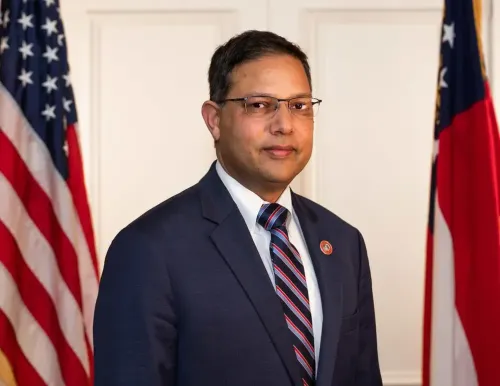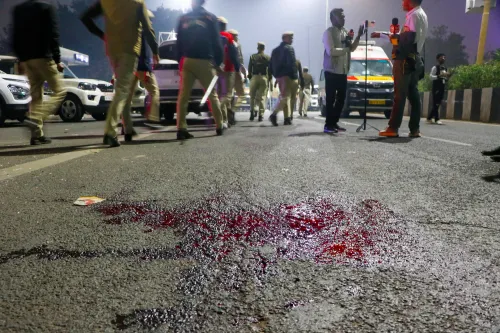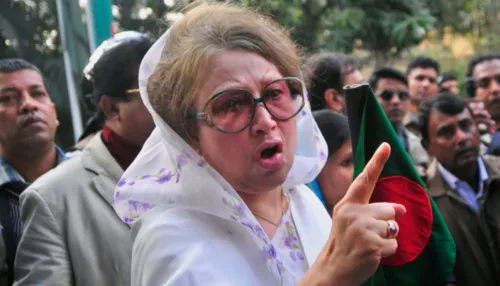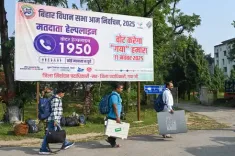How Can Pakistan Overcome the Looming Water Crisis?
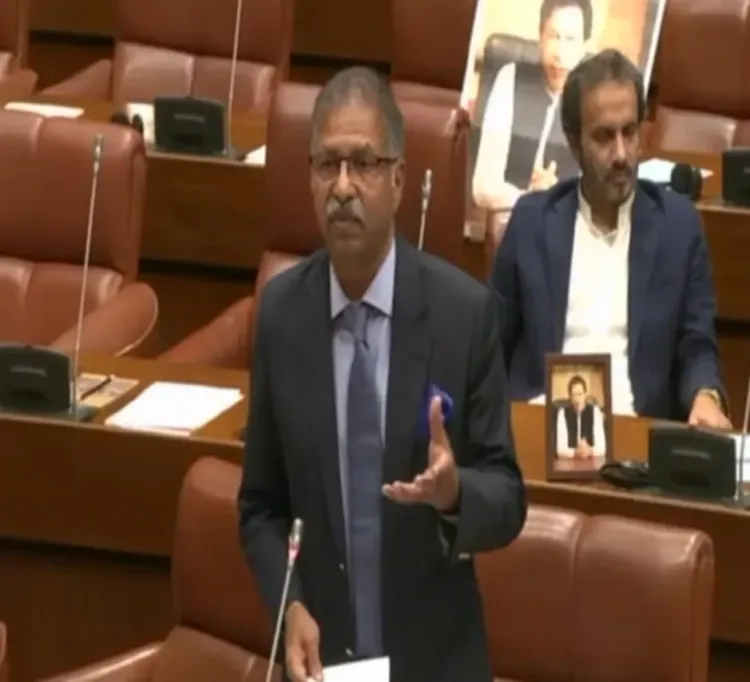
Synopsis
Key Takeaways
- Pakistan is facing a significant water crisis.
- Urgent action is required from the government.
- India has suspended the Indus Waters Treaty due to security concerns.
- Food security is at risk if the water issue isn't addressed.
- Collaboration between both nations is crucial for a resolution.
Islamabad, May 23 (NationPress) Pointing out that the nation faces an impending water crisis, a Pakistani senator made an urgent call on Friday for the Shehbaz Sharif administration to "defuse" the looming "water bomb" affecting the country, following India's suspension of the Indus Waters Treaty (IWT) after the tragic April 22 Pahalgam terror attack that claimed the lives of 26 innocent civilians.
"We would perish from hunger if we do not tackle the water crisis immediately. The Indus Basin is our essential lifeline, with three-quarters of our water sourced from outside the country. Nine out of ten citizens rely on the Indus water basin for their livelihoods, with as much as 90 percent of our agricultural output dependent on this water, alongside all our energy projects and dams built upon it. This situation resembles a water bomb poised to explode over us, and we must neutralize it," stated Pakistan Senator Syed Ali Zafar during a Senate session on Friday.
The Indus Water Treaty, signed in 1960, regulates the distribution of water from six rivers—Indus, Jhelum, Chenab, Ravi, Beas, and Sutlej—between India and Pakistan.
In light of the circumstances, Islamabad has been pressuring New Delhi to reconsider its decision regarding the IWT, with statements made by the National Security Committee (NSC) of Pakistan and Deputy Prime Minister and Foreign Minister Ishaq Dar in the past weeks containing threats and unsubstantiated claims.
Nevertheless, India has invoked its national security rights, clearly stating that the treaty will remain suspended until Islamabad "credibly and irrevocably" ceases its support for cross-border terrorism.
This decision received backing from the Cabinet Committee on Security (CCS), the top decision-making entity for strategic matters, immediately after the Pahalgam attack, marking the first occasion New Delhi has paused the World Bank-mediated agreement.
As India initiated Operation Sindoor, Prime Minister Narendra Modi has consistently emphasized the government's unwavering stance that "water and blood cannot flow together" and that "terror and dialogue cannot coexist simultaneously."
"I must reiterate that any discussions regarding Jammu and Kashmir will only pertain to the withdrawal of Pakistan from illegally occupied Indian territory. Regarding the Indus Waters Treaty, I repeat, it will remain suspended until Pakistan genuinely and permanently renounces its support for cross-border terrorism. As our Prime Minister has stated, water and blood cannot flow together, and trade and terror cannot coincide," stated Randhir Jaiswal, spokesperson for the Ministry of External Affairs (MEA), during a media briefing in New Delhi on Thursday.
On the same day, PM Modi reiterated India's firm position against terrorism, asserting that no negotiations or trade with Islamabad would occur unless it relinquished its illegal occupation of Kashmir.
"If there is to be any discussion, it will concern Pakistan-occupied Kashmir (PoK). Should Pakistan continue exporting terrorists, it will find itself begging for every penny, not receiving a single drop of Indian water," he remarked during a large public rally in Bikaner, Rajasthan on Thursday.
PM Modi also emphasized that "playing with the blood of Indians will incur significant consequences for Pakistan."

